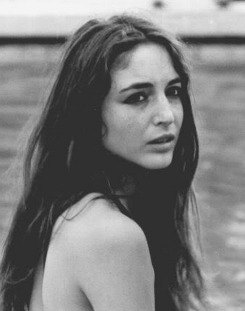Christine Pascal (Christine Pascal)

Christine Pascal was born in Lyon, Rhône, Pascal made her film debut at 21 in Michel Mitrani’s Les Guichets du Louvre (1974), and began an association with Bertrand Tavernier with her next film, L’Horloger de Saint-Paul (1974). Other films with Tavernier include Que la fête commence (1975), for which she received a César nomination for Best Supporting Actress; The Judge and the Assassin (1976); Des enfants gatés (1977), which she co-scripted; and Round Midnight. Other film appearances include Black Thursday (1974), La Meilleure façon de marcher (1976), The Maids of Wilko (1979), Entre Nous (1983), and Le Grand Chemin (1987). She made her directorial debut with Félicité, and also directed La Garce, Zanzibar, Le Petit prince a dit (which won the Louis Delluc Prize) and Adultère, mode d’emploi.
Christine Pascal had contemplated suicide at various times in her life, and Félicité, the first film she directed, opens with a suicide scene. In 1984, when asked how she would like to die, she reputedly said, “En me suicidant, le moment venu.” (“By killing myself, when the time comes.”) In 1996, while staying in a psychiatric hospital in the Paris suburb of Garches, Pascal committed suicide by throwing herself out of a window. She is buried in Cimetière du Père Lachaise in Paris. In 2003, the psychiatrist whose care Pascal was under was sentenced to one year in prison for failing to take appropriate action to prevent her suicide.
Born
- November, 29, 1953
- Lyon, Rhône
Died
- August, 30, 1996
- Garches, Hauts-de-Seine
Cause of Death
- suicide
Cemetery
- Cimetière du Père Lachaise
- Paris, France



